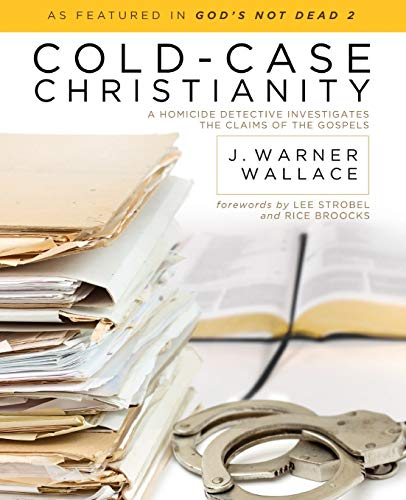
As we continue our Foundations series, we are reflecting on the essential beliefs on which our whole Christian worldview rest. We’ve seen that the unshakable double layer basis for our faith is God and His Word. The two are inseparable because God has staked His entire character and reputation on the truth of His Word, even going so far as to present Jesus AS the Word of God made flesh (John 1:1-5).
We can conclude from creation and conscience that there is an Almighty and holy God. But only through Scripture can we know what this God is like and how to approach Him. So in a very real sense, everything about Christianity depends on the truth and reliability of Scripture.
Here are five reasons to trust the Bible completely, along with links for each one if you want to read more.
Reason 1 – Jesus Trusted the Bible
How did Jesus face the devil’s temptations? He quoted from Deuteronomy 6-8, the heart of the Jewish Law. How did Jesus establish his authority in his first teaching (Luke 4)? He quoted Isaiah 61 as the template for his mission. How did Jesus argue with the Jewish leaders? He showed them how they were misunderstanding and misinterpreting the Old Testament, and gave them the correct interpretation.
"Do not think that I have come to abolish the Law or the Prophets; I have not come to abolish them but to fulfill them." Matthew 5:17
"And he said to them, 'O foolish ones, and slow of heart to believe all that the prophets have spoken! Was it not necessary that the Christ should suffer these things and enter into his glory?' And beginning with Moses and all the Prophets, he interpreted to them in all the Scriptures the things concerning himself." Luke 24:25-27
Reason 2 – The Apostles were Simply Writing what they Saw
In order to evaluate any historical claim you have to consider the author and his or her motives. When an Egyptian Pharaoh, for example, documents his incomparable wisdom and courage – engraving his achievements into stones – you would be right to question the exact accuracy of his claims, especially if the only testament to these claims is the official royal scribe. Now, if there is another witness, from an enemy of the Pharaoh at the same time who writes about some amazing military victory of the Egyptians, the truth of an event would appear much stronger in history.
What motivated the apostles – Peter, John and Matthew – to write their parts of the New Testament? What motivated the apostles’ friends (Mark, Luke and James the brother of Jesus)? What did Paul have to gain or lose by testifying to the resurrection of Jesus?
According to church tradition, all 12 of the original disciples of Jesus (the apostles, counting Matthias instead of Judas) were martyred for their faith in Jesus, except for John who died in exile. If someone benefits from a claim – like having miraculous power – you would rightly question their motives. But if a person or group risks persecution, suffering, sacrifice and eventually death for a cause – you would rightly admire their commitment to the truth and value of that cause.
Reason 3 – The Bible Holds up to Intense Examination
Over the centuries many people have questioned the accuracy and reliability of the Bible when it comes to the many verifiable details included in the text. When did King Herod live? Was there a Roman Governor named Pilate? Did Hittites ever exist in the land of Israel? There are thousands of specific details in the Bible that have been analyzed and scrutinized by those wanting to prove that it is riddled with errors.
But no substantial allegation of error has held up to reasonable explanations. Gleason Archer wrote a seminal treatment of Bible Difficulties in 1982.

Geisler and Howe provided an updated resource in 2008. If you approach any detail in the Bible without a severe bias against its reliability, there are good explanations. Often the arguments used to demonstrate errors in the Bible end up being evidence for the reliability of the Scripture. I wrote about Mark 1 and Mark 16 here. I wrote about the Pilate stone here.
No book has been so consistently and systematically attacked. But the Bible always come through these attacks looking better and stronger for the analysis. Many atheists and skeptics, like Lee Strobel and Josh McDowell, have set out to disprove Christianity and instead concluded it must be true.
I have been consulting McDowell’s Evidence that Demands a Verdict for decades, as have many students of history and many seekers of truth. For this series on worldview I have drawn heavily from Josh and Sean McDowell’s book The Unshakable Truth – How you can experience the 12 essentials of a relevant faith.
The process by which the Bible was collected and preserved is unparalleled and remarkable. We can trust – with immense confidence – the book we hold in our hands to be a reliable expression of what the original authors wrote as the Holy Spirit guided them.
Reason 4 – The Bible is an Amazing and Inspiring Book
The unified message of the Bible, from Genesis 1 to Revelation 22 is staggering when you consider that it was written by 40 authors over 1,500 years. “The Bible is one story and it all points to Jesus” (Pastor Colin Smith, Unlocking the Bible.)
Just pick up the Bible to read a Psalm or the gospel of John or a letter of Paul and you will quickly experience the beauty and power of God’s Word. Some parts are more technical and require more understanding of what was going on at the time (the Jewish Law in Leviticus, for example; or the writings of a specific prophet). But wherever you read, in whatever life experience you find yourself, God will speak to you from His Word.
Reason 5 – History and Archaeology Support the Bible
I mention this last not because it is insignificant but rather to show that the normal methods of evaluating history provide significant additional evidence for its reliability. A skeptic or seeker might well begin with some of these details – such as how the Dead Sea Scrolls include the complete Isaiah scroll, which includes all of Isaiah 53.
In conclusion, the Bible is filled with invitations to seek the Lord through His Word:
"Oh, taste and see that the Lord is good! Blessed is the man who takes refuge in him!" Psalm 34:8 "How sweet are your words to my taste, sweeter than honey to my mouth!" Ps. 119:103 "Ask and it will be given to you; seek and you will find; knock and the door will be opened to you." Luke 11:9

